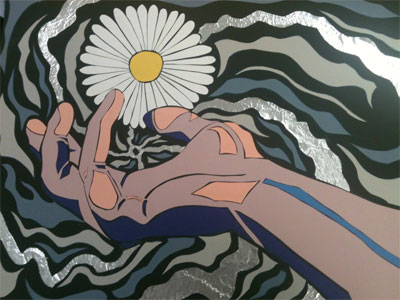All Nonfiction
- Bullying
- Books
- Academic
- Author Interviews
- Celebrity interviews
- College Articles
- College Essays
- Educator of the Year
- Heroes
- Interviews
- Memoir
- Personal Experience
- Sports
- Travel & Culture
All Opinions
- Bullying
- Current Events / Politics
- Discrimination
- Drugs / Alcohol / Smoking
- Entertainment / Celebrities
- Environment
- Love / Relationships
- Movies / Music / TV
- Pop Culture / Trends
- School / College
- Social Issues / Civics
- Spirituality / Religion
- Sports / Hobbies
All Hot Topics
- Bullying
- Community Service
- Environment
- Health
- Letters to the Editor
- Pride & Prejudice
- What Matters
- Back
Summer Guide
- Program Links
- Program Reviews
- Back
College Guide
- College Links
- College Reviews
- College Essays
- College Articles
- Back
Pocahontas
With its vividly colored scenes and lovable animal characters, Pocahontas is a classic Disney movie. The audience was entranced by the blooming romance between Pocahontas and John Smith and laughed at Meeko and Percy’s antics. Yes, Pocahontas seems like a harmless children’s movie, but the 91-minute long film can damage young and impressionable viewers.
Pocahontas is a despicable movie because it is inaccurate. Unlike other Disney movies, the Pocahontas storyline is a historical encounter described in A True Relation of Virginia, a biography by Captain John Smith (the real one). In his anecdote, Smith recounts the story of how Pocahontas, aged 11 or 12 at the time, supposedly saved him from being executed from her father. Smith narrated the story in a perspective that portrays young Pocahontas as a “good” Native American who turned her back on her tribe to save a dreamy English settler.
Not only is the movie incredibly disrespectful to Pocahontas, but it falsely depicts the whole of Native American women. Disney made Pocahontas much older and more suited to typical standards of beauty in society. She is tall and sports an hourglass figure with luscious red lips and perfect long hair.
In addition to her appearance, the movie shows Pocahontas as a naive girl who craves adventure. As mentioned previously, Pocahontas is often depicted as an “obedient” Native American, meaning she is willingly open to the ideas of Christianity and she admires the white settlers’ drive to colonize the New World. She would constantly rebel against her father, the chief of the tribe, to defend John Smith and the rest of his men. Although the settlers had opposed her tribe and had even planned to rob them of their gold, Pocahontas still sought peace between the two groups. Ultimately, her “true love” for John Smith saves the day when she shields him with her own body just before her father was going to execute him. Every time I watch this scene, I can’t help but think, Really, Pocahontas? You can do so much better.
Despite the historical inaccuracies of Pocahontas, it received many awards including a Grammy, a Golden Globe, two Oscars, and four Annies. Most of these awards recognized the musical score of the movie- more specifically for the famous song, “Colors of The Wind,” by Judy Kuhn. I too enjoyed the music and was awed at the beauty of the animation. However, the songs and the cinematography do not make up for Disney’s wrongs of Pocahontas.
Pocahontas II: Journey to a New World, was released in 1998, three years after the first Pocahontas. In this sequel, Pocahontas travels to England as an ambassador with her guide and new love interest, John Rolfe, who was Pocahontas’s husband in real life. This film was Disney’s sorry attempt to shift the storyline and make things right, but the movie was not able to repair the damage they left. I understand that children do not exactly want to watch a documentary on the relationship between Native Americans and white settlers, but they should not have to be misled by an extremely dramatized entertainment film.
Pocahontas is one of my least favorite Disney movies. It’s not so hard to follow history, but Disney decided to market the fantasy relationship between Pocahontas and John Smith. If you’re looking for a timeless Disney film to watch, set aside Pocahontas and choose something with a more meaningful message and less stereotypical characters.

Similar Articles
JOIN THE DISCUSSION
This article has 0 comments.
